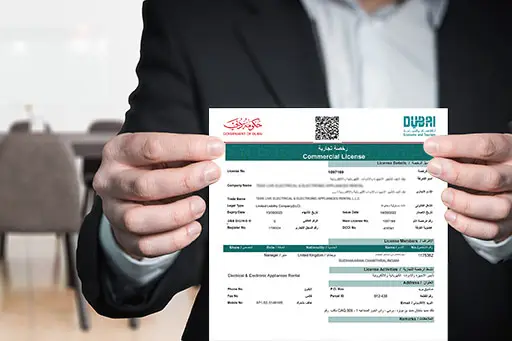Dubai has become a magnet for individuals looking to reduce taxes, enjoy a high quality of life, and access world-class business opportunities. With no personal income tax and a growing network of global entrepreneurs, it’s no surprise that more people are considering a move to the UAE.
However, moving for tax benefits requires more than just booking a flight and securing a visa. To fully leverage Dubai’s tax advantages, you need a strategic relocation plan that ensures compliance both in your home country and in the UAE. This guide explains each step in detail, offering actionable advice and practical tips for a smooth transition.
Step 1: Exit Your Home Country the Right Way
Before you can benefit from Dubai’s tax-free environment, you must legally exit your home country. Many expats make the mistake of assuming that moving physically is enough to stop taxation. However, each country has specific rules for tax residency, departure reporting, and asset management.
Country-Specific Considerations
- Canada: Canadians need to declare their departure to the Canada Revenue Agency (CRA) and may be subject to exit tax on certain assets. Real estate is tricky — renting to relatives often does not count as “arm’s length” income, which can complicate tax obligations.
- UK: The UK uses the Statutory Residence Test (SRT). Your tax residency is determined by the number of days spent in the country and the “ties” you maintain (family, property, business, etc.). Some people may only be allowed 30–90 days in the UK without impacting tax residency.
- Australia: Australians need to notify the Australian Tax Office (ATO) and may face capital gains tax if they sell property or investments after leaving.
- Germany: Germans have strict rules for tax residency based on physical presence and maintained ties, such as property or family connections.
General Tips for a Smooth Exit
Regardless of your country, the following actions are typically recommended:
- Sell or Rent Out Your Property: Ensure it’s done legally, and document any rental agreements. Avoid renting to close relatives if you want it recognized for tax purposes.
- Dispose of or Sell Vehicles: Some countries tie car registration to residency for tax and insurance purposes.
- Close Local Bank Accounts: Transfer funds legally to your new bank in Dubai.
- Cancel Subscriptions and Services: This reduces “ties” to your home country that may affect tax residency.
- Family Relocation: Move your spouse and children with you if possible, as their presence may influence your home country’s tax calculations.
- Professional Advice: Consult a certified international tax advisor to ensure all departure paperwork is filed correctly.
Key Takeaway: Exiting properly ensures you avoid dual taxation or unexpected tax liabilities later.

Step 2: Establish Tax Residency in the UAE
Once you’ve left your home country, the next step is to legally establish yourself as a tax resident in Dubai. Without this, your home country may still claim you owe taxes.
How to Become a UAE Tax Resident
There are several paths to establishing UAE tax residency:
- Company Formation: Setting up a business in Dubai grants a residency visa, usually valid for two years initially. Free zone companies are a popular choice for expats because they offer 100% foreign ownership and simplified compliance.
- Property Investment: Purchasing real estate above AED 2 million qualifies you for a 10-year Golden Visa, which also supports tax residency.
- Employment Visa: Working for a UAE-based company gives you residency, but you must ensure your tax residency status is recognized with proper documentation.
Practical Tips
- Keep Proof of Residency: Tenancy contracts, utility bills, and Emirates ID records will be essential if your home country challenges your tax status.
- Plan Ahead: Consider which visa type aligns with both lifestyle and tax planning goals. A business visa may offer more flexibility for entrepreneurs, while property investment may be preferable for families seeking long-term security.
Step 3: Open a UAE Bank Account and Move Your Finances
With a valid residency visa and Emirates ID, the next step is to move your finances to Dubai.
Steps to Transfer Finances
- Choose the Right Bank: Select a bank that caters to expats, offers multi-currency accounts, and provides robust online banking.
- Legal Transfers: Use official channels for international transfers to maintain transparency. Avoid informal methods that may raise red flags with tax authorities.
- Document Everything: Keep all records of transferred funds, deposits, and withdrawals. These will support your tax residency claims if needed.
Why This Step Matters
Moving your finances legally demonstrates that your economic center is now in the UAE. This is crucial when applying for a Tax Residency Certificate or defending your tax position with authorities in your home country.

Step 4: Spend Enough Time in Dubai
Many people assume that simply having a UAE visa is enough to establish tax residency. This is incorrect.
- Residency Visa Requirement: To keep your visa active, entering the UAE once every six months is sufficient.
- Tax Residency Requirement: To qualify as a UAE tax resident for your home country, you generally need to spend at least 90 days per year in Dubai.
Pro Tips
- Keep travel records, hotel receipts, and utility bills as evidence of your physical presence in Dubai.
- Use a dedicated UAE address for all correspondence to reinforce residency claims.
- Remember: While Dubai does not impose personal income tax, your home country might still require proof that you are legally a UAE resident.
Step 5: Limit Time in Your Home Country
Even after establishing UAE residency, spending too much time in your home country can jeopardize your tax-free status.
- Canada: You may spend up to 183 days per year without losing tax residency, but experts recommend spending more time in Dubai than Canada.
- UK: Rules are stricter, depending on the number of “ties” (family, property, business). Some individuals can only spend 30–90 days without risking residency status.
- Australia & Germany: Similar restrictions exist. Always check with a qualified tax advisor to confirm limits.
Rule of Thumb: Spend the majority of your time in Dubai compared to your home country to avoid dual taxation.
Step 6: Document Everything and Maintain Compliance
Proper documentation is essential for protecting your tax residency status and avoiding disputes.
Recommended Documentation
- Visa and Emirates ID: Proof of legal residency.
- Tenancy Contracts and Utility Bills: Proof of living in Dubai.
- Bank Statements: Evidence of UAE-based financial activity.
- Travel Records: Flights, hotel stays, or entry/exit stamps.
- Tax Residency Certificate (TRC): Official UAE certificate showing tax residency.
Maintaining organized records helps in case your home country requests proof of residency or challenges your tax status.
Step 7: Special Considerations for Entrepreneurs and Business Owners
Entrepreneurs and business owners face additional considerations when relocating to Dubai.
Key Factors
- Business Structure: Decide between free zone or mainland company depending on ownership, business type, and licensing needs.
- Banking Needs: Business accounts have separate requirements. Choose a bank that understands cross-border business operations.
- Accounting & Compliance: Maintain UAE-compliant accounting and bookkeeping to support tax residency claims.
- Asset Protection: Structure your UAE-based assets to minimize risk and maximize benefits.
Why This Matters
Entrepreneurs often have more complex financial structures. Careful planning ensures legal compliance, financial efficiency, and protection from double taxation.

Step 8: Lifestyle and Long-Term Planning
Beyond taxes, Dubai offers several advantages:
- No Personal Income Tax and relatively low corporate taxes.
- High Quality of Life with modern healthcare, international schools, and world-class amenities.
- Networking Opportunities for business and investment.
- Global Access with one of the busiest airports and a hub for travel and commerce.
By planning your relocation strategically, you can maximize financial benefits while enjoying Dubai’s lifestyle.
Step 9: Common Mistakes to Avoid
- Assuming a Visa Equals Tax Residency – Spending a few days a year is not enough.
- Keeping Too Many Ties at Home – Property, family, or bank accounts can affect tax status.
- Skipping Professional Advice – International tax law is complex; professional guidance is essential.
- Poor Documentation – Without proper evidence of residency, home country authorities may question your tax status.
Step 10: Final Checklist
Before relocating, make sure you:
- Exit your home country legally.
- Obtain a UAE residency visa.
- Establish a UAE-based bank account.
- Spend sufficient time in Dubai.
- Keep detailed documentation of residency and finances.
- Limit time spent in your home country.
- Plan for business and asset protection if you are an entrepreneur.
Following this checklist ensures a smooth relocation and maximizes Dubai’s tax advantages.

Conclusion
Relocating to Dubai for tax benefits is highly rewarding if done correctly. The key is strategic planning, proper documentation, and professional advice. By following these steps, you can:
- Avoid dual taxation
- Legally establish UAE residency
- Enjoy financial freedom and a tax-free environment
- Access Dubai’s lifestyle and business opportunities
Dubai is not just a destination; it’s a strategic move for financial and personal growth.
If you’re planning your move to Dubai and want to do it the right way, GenZone can guide you every step of the way. From company setup and visa processing to bank account opening and tax residency planning, they help entrepreneurs, business owners, and professionals relocate smoothly and legally.
GenZone team specializes in making sure your move is strategic, compliant, and stress-free, so you can focus on enjoying Dubai’s lifestyle and financial advantages. Book a free consultation today to get started on your Dubai journey the smart way.









